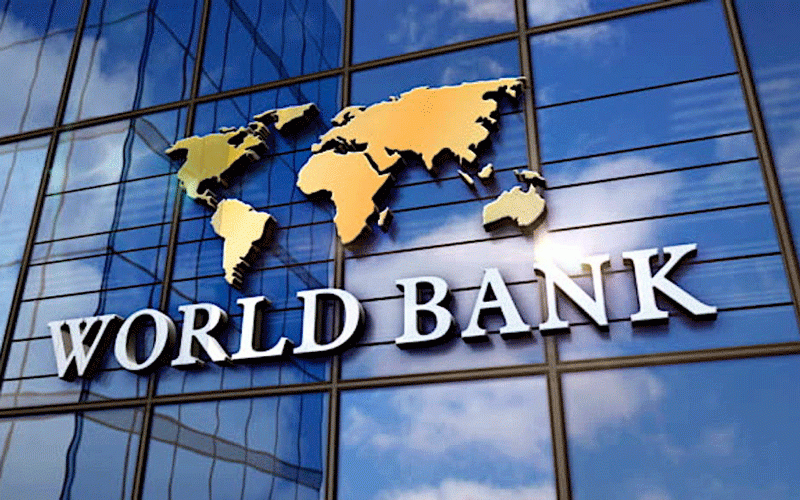
Credit ratings are increasingly attracting attention in the emerging market space spurred by an avalanche of sovereign downgrades in the aftermath of the international debt market frenzy that caught several emerging markets between the devil and the deep sea.
Few lessons were learned from the PIIGS (Portugal, Italy, Ireland, Greece and Spain) debt crisis that was precipitated by the 2008 financial crisis, with a combination of toxic borrowing, slow growth, fiscal weaknesses and mutually reinforcing structural issues increasing default risk.
The predicament was distant then as Africa had become accustomed to seasoned defaulters. However, increased investment by China began to spoil the track record as hidden debt pushed Mozambique into default resulting in souring relations with the World Bank.
Many African countries became entangled in the web of opaque debt obligations contracted on a bilateral basis due to exuberance over high value infrastructure projects.
Ostensibly, some of the projects were not properly packaged to repay contracted debt. Soon to follow was the insidious hand of hidden debt, exacerbated by weaker copper prices, driving Zambia to defaulting on a $42.5m interest payment in 2020.
At the time of default, Zambia’s debt to GDP ratio was 140.2%. This followed several oversubscribed bond issuances that grew the debt stock, ushering unprecedented excitement over international capital markets, with economies preferring to issue Eurobonds over multilateral debt from the World Bank, International Monetary Fund and other supranational entities.
The lure of international debt markets is mostly the absence of stringent conditions on fiscal and external account targets and regular monitoring that often impede political objectives.
Well, the Bretton Woods institutions are known for the one size fit all antidote and memories of austere policies in the mould of the Economic Structural Adjustment Program (Esap) are unsettling to many economic and political players.
- Inside Sport: Local stadiums in urgent need of attention
- Ghetto dances: When love of money goes beyond bounds of sanctity
- Dawson pleased ahead of World Cup qualifiers
- Eva heads for Miss Heritage Global
Keep Reading
The furore over Eurobonds grew considerably, so did the stock of foreign currency denominated debt exposing economies to default in stressed economic conditions.
Exogenous shocks were to induce the dreaded stress. Systematic effects of the Covid-19 pandemic, followed by the Russia-Ukraine war, triggered the domino effect that dampened economic growth, raised fiscal pressures on economies that had little buffers to service debt and constricted export earnings.
Ghana was the first country to succumb to the pressures after failing to honour public debt of c.USD$55bn. External debt constituted 58% of the stock.
According to the IMF and World Bank, government gross debt relative to GDP measured at an unsustainably high of around 90% and debt service to revenue reached 117.6%.
Impliedly, debt repayments were outstripping budget allocation to all core expenditure heads and taxpayers were toiling to pay debt holders. The big hook question is where were the debt proceeds invested and how much was being derived from funded projects for the economy to risk a fiscal disaster of that scale?
Quintessentially, borrowers and lenders have a sacred mutual responsibility to ensure that funds raised through a bond issuance should have a series of cashflows that repay interest commitments over the term of the loan.
However, the story of emerging market debt dodges important questions on where the money has been deployed and taxpayers have to fund debt service costs and suffer capital write downs, if doubling as bondholders.
Somehow, economic mediocrity is normalised and political posturing takes over to deflect a proper attribution of the causes of the crisis. Accountability and transparency are core tenets of successful debt management program and should be engendered in every country that seeks to succeed.
While megaprojects are a symbol of economic might and inspire awe in all and sundry, the detail on how they are financed is important for such utility to be sustainable.
Recent dissonance over the Standard Guage Railway (SGR) and Nairobi Expressway (the road for the rich) in Kenya are good examples on how beautiful projects can increase the vulnerability of a country.
Benefits that were expected from the SRG did not accrue in line with plans as trucks returned to the Mombasa-Nairobi road to ferry cargo that was supposed to be used the SGR.
The spectacle of a clean Express Way and a congested free highway along it in Nairobi speaks to the dangers on fixating on the majesty of a project rather fit to society. In this respect, the proper packaging of projects using feasibility analysis from well-trained experts is imperative to sustainable debt driven growth.
Blaming rating agencies — who in fact are simply churning out own opinions will not provide the discipline needed in creating high performing economies.
In the aftermath of the downgrades of the PIIGS by the leading rating agencies, the questioning of rating agencies methodologies was not a major discussion topic.
All hands were on deck to bail out affected economies, which were members of the European Union. That economic positioning brought its own fortunes and misfortunes.
The EU worked out a bail out, but fat and tissue had to be cut to access the funds as prescribed austerity measures stirred socio-political unrest in Greece. It was bitter medicine all the way and taxpayers ultimately bailed the economies.
On the other hand, the Ghana default led to the questioning of methodologies used by rating agencies, with allegations of bias against African countries.
Biases cannot be ruled out from rating actions as they depend on the diligence of the primary analyst’s view on rating drivers and subsequent risk modelling.
Furthermore, the structure of the rating committee could be affected by paucity of local knowledge and connections.
Notwithstanding this underbelly of rating decisions, difficult questions on how economies can allow debt commitment tooverrun concomitant cash flows from projects and consume more than 70% of recurrent expenditure require a collective review to prevent the scourge of defaults from reverberating through emerging markets.
While the debate was still raging, in December 2023 Ethiopia missed a US$33m coupon payment on a Eurobond. The default was on the basis that the Ethiopian government had reached an agreement in principle with bilateral creditors to suspend debt payments and restructure the country’s US$1bn Eurobond.
Fortunately for domestic debtholders in Ethiopia there was no Domestic Debt Exchange Program as the situation in Ghana and the local currency bonds retained the credit rating of CCC-, a single notch above administrative ratings that anticipate a default.
Given high growth potential, emerging markets benefit most from positive leverage and continued access to low-cost finance. However, downgrades will increase the cost of debt and accelerate default, eventually closing further avenues for finance.
Ensuing debt restructurings are highly disruptive to the capital markets and could lead to social unrest as taxpayers revolt against austere measures to finance the debt.
In this respect, economic mediocrity in managing debt is threatening the convergence between emerging market and developed markets as risk adjusted growth for the latter is lowered to levels equivalent or below those of developed markets.
Before default, Mozambique, Zambia, Ghana and Ethiopia were promising economies with impeccable economic fundamentals, yet sovereign ratings for the countries have seen multiple-notch downgrades over the past three years ditching investor euphoria.
As Ghana works out of the 2022 economic fallout and Ethiopia is renegotiating through the G20’s common framework after delays caused by the Covid-19 pandemic and the two-year civil war, the spectre of default is hanging over several countries that have been called out for high debt vulnerability going into 2024, albeit with a more galvanised armoury in place.
Distress calls are ringing in 2024 in parts of Africa, but global investor appetite for Eurobonds spectacularly bounced back after the lull in 2022.
Eurobond bullet maturities are expected for Kenya (USD2bn due in June 2024) and vigorous engagements with the IMF and regional banks could prevent a default.
Neighbourhood effects could be playing out positively. Rwanda is managing its Eurobond well after paying the May 2023 dues and the next amortisation is in 2031.
While the debt to GDP ratio of circa 68% at end-2023 is above the B rating average of 55%, according to Fitch Ratings, high growth rate trajectory (2023-2025 average: 5.9%) and high proportion of concessionary funding (66% of total debt) are mitigants.
Otherwise, there has been a hiatus in new Eurobond issuance with the IMF being active with financial programs for Zambia, Tanzania, Mozambique and Benin as the African economies seek to shore up the share of concessional borrowing in the stock of public debt as the average Emerging Market Eurobond yield surged to 9%.
For confident economies, Eurobonds are there to provide diversity and liquidity with Emerging Markets led by investment grade rated Saudi Arabia issuing $39bn by mid-January 2023, 40% of the 2022 total issuances according to Reuters, quoting Morgan Stanley’s prediction of $143bn gross sales for 2023 (2022: $95bn; record of $233bn set in 2020).
The distribution of 2023 Eurobond issuances show that African economies have to learn to harness resources to spur investment and growth, reduce socio-political risks and build knowledge-based economies that are resilient to debt shocks.
Failure to succeed in the debt markets and manage the balance between market and concessional borrowings could spell multiple years of underdevelopment.
Chingono has experience in credit analysis focusing on insurance companies, banks and corporates. He is currently a credit analyst based in Australia and founder of ratings advisory business; Quad P Investor Services. — gochin77@gmail.com










